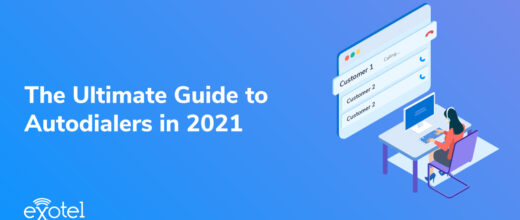Communication is an important asset for all startups, especially stockbrokers) as most of the business happens over a phone call – taking orders or talking to customers.
Today, there are many channels in play like email, chat, video conferencing, to communicate for businesses.
These channels have improved the speed at which conversations move, but a phone call still remains the most favorite because of the ease of access and use.
A phone system is integral to the operations of a stock-broking company. Yet, many companies are pushing their legacy phone systems beyond their years. The effect of this is felt when the system fails, calls are missed and deals are lost.
If you are actively thinking about upgrading your business phone system to a smart one that can handle calls, scale your business, keep your customers informed and not have you sell your soul to buy it, this is the right article for you.
When you are zeroing in on a business phone system, ask your potential partner these five questions.
1. How easily can you set up and manage this phone system?
A phone system should be effortless to setup and manage. This is harder to achieve with on-premise solutions or what is commonly known as EPABX systems.
The setup can only be done by a professional, the equipment is expensive, and it takes up a lot of office space. The maintenance costs and the dependence on the professional support are also high.
Cloud-based phone systems, on the other hand, enable you to communicate in a less expensive, and more streamlined manner.
Since the entire system is on the cloud, you save on real estate cost (a big factor with a lot of small offices!), maintenance and paying for a person to manage it. You can sign up, go out for a coffee, come back and see that your phone system is live- it is that simple!
This is extremely favorable where time is of the essence. For instance, the SEBI order which mandates phone call recording for stockbrokers from 1 January can be achieved easily with cloud telephony. This is not the case with an on-premise solution.
The other advantages being, you can pay as you go, add users, add IVR greetings and edit the call flow without the help of a professional.
2. What are the features available with this system?
This is an important question to ask, to check if your needs are in alignment with the features of the system.
An on-premise system has limited features – the activation takes weeks, the brokers have to be restricted to their desks, no call recording option, scaling is tough, the maintenance and update hassles are a story for another day.
With cloud telephony, you can get a simple call flow up and running in less than 30 minutes.
A warm and professional IVR greeting will make your customers feel welcome, and the employees can take calls on the go without having to be chained to their desk. Scaling is very easy, automatic and you get unlimited support as you grow.
The SEBI regulation instructs that the proof of burden will be on the broker to produce voice recordings for a disputed trade. Cloud communication products offer 24/7 call recording without any assistance.
Generating reports and insights with traditional phone systems is tedious. Cloud telephony offers exhaustive everyday reporting with information about call patterns, call productivity, call quality etc.
Here’s a list of features you should ideally look for in any cloud telephony software you choose:
1. IVR greeting
2. Multi-level IVR
3. Call Recording
4. Adding unlimited agents
5. Easy call flow builder without having to code
6. Well documented APIs (for automation and integrations)
7. Easy to understand daily reporting





 +65-6951-5460
+65-6951-5460 +91-8088919888
+91-8088919888 +1-(718) 354-8866
+1-(718) 354-8866 +62-215-098-4960
+62-215-098-4960 +60-3-2771-2799
+60-3-2771-2799 +61-2-8073-0559
+61-2-8073-0559
No Comments